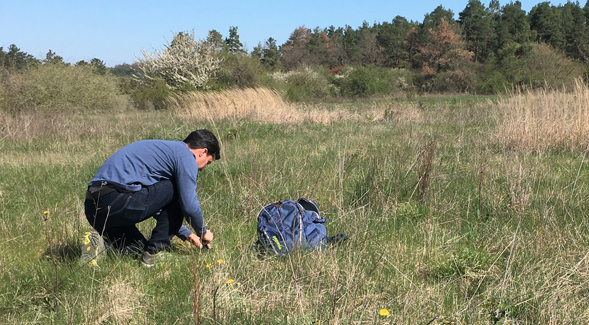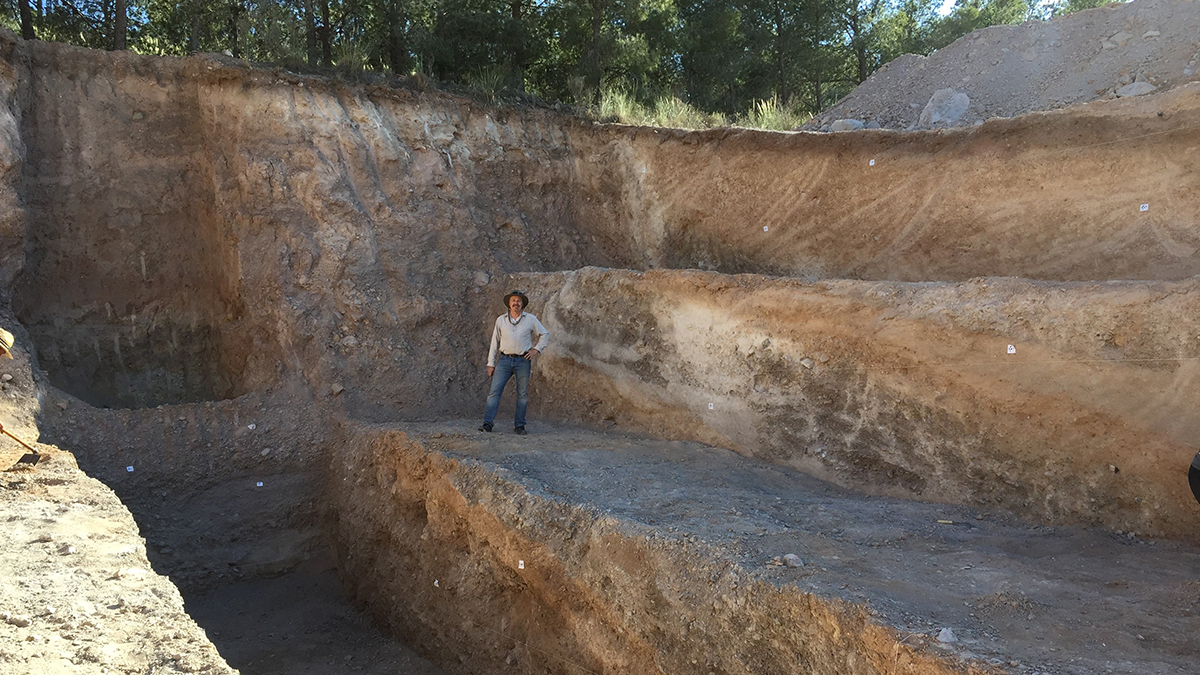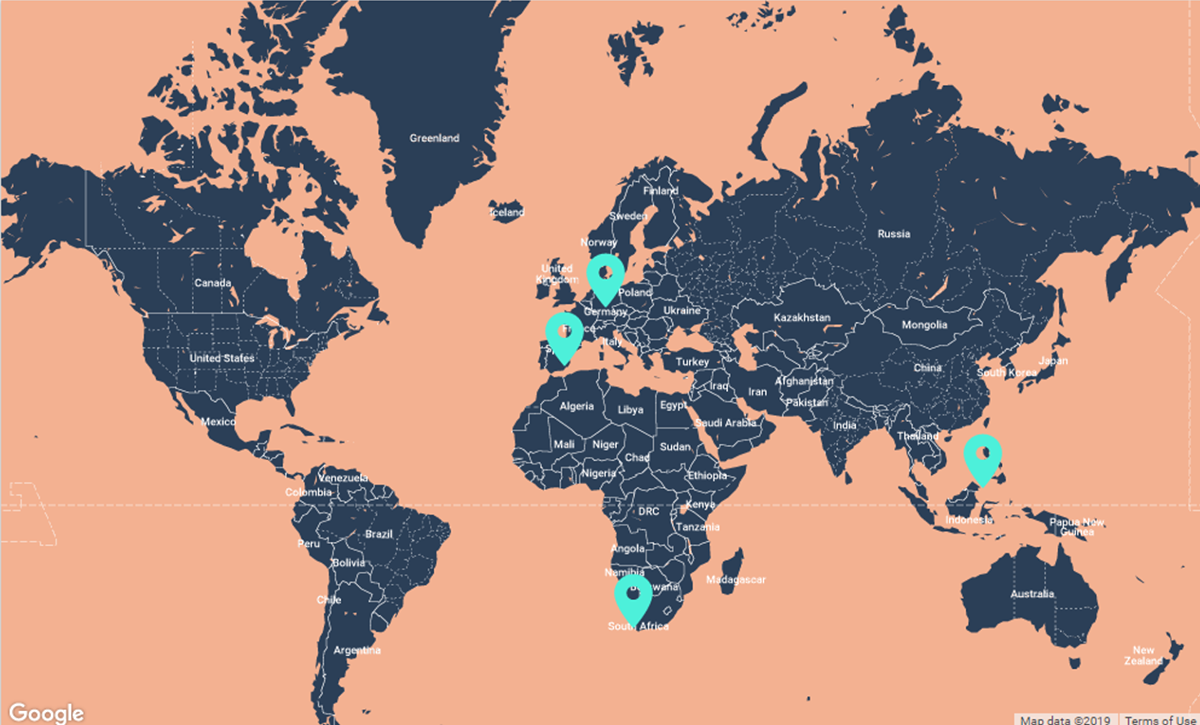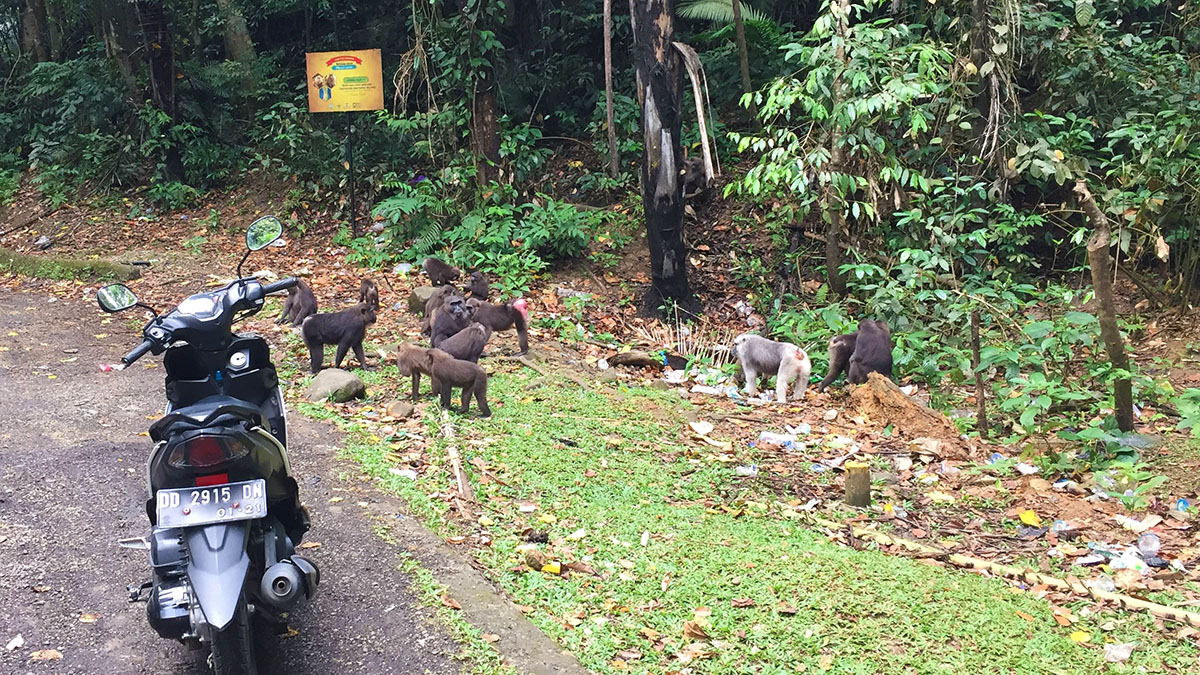Earthquakes, Ecosystems and Endangered Monkeys: Summer Research Abroad
Faculty are conducting critical fieldwork in Indonesia, Germany, Spain, South Africa and elsewhere.

Dozens of San Diego State University professors are abroad this summer, conducting fieldwork for critical research in five of the seven continents.
This is the first in a series that highlights faculty research abroad this summer.
Protecting Endangered Monkeys in Indonesia
Monkeys often congregate along a narrow road that bisects a thick jungle on the large Indonesian island of Sulawesi, accepting snacks from visitors or rummaging through litter dumped in pits along the road.
The small offerings of food may seem insignificant to tourists and locals, but they are far from harmless to the resident moor macaques, an endangered primate native to Sulawesi.
The provisions from passerby, along with nearby litter, encourages the animals to congregate near the winding road and increases their likelihood of being struck by passing vehicles. And the food may negatively impact their health, making the macaques more susceptible to disease and illness.
Anthropology professor Erin Riley is conducting fieldwork in Sulawesi’s Bantimurung-Bulusaraung National Park this summer, building a research-driven intervention that will discourage littering and seemingly harmless acts like feeding wild animals.
“We want to develop something that links the visual arts and science communication and inspires empathy and a willingness to protect these endangered primates,” Riley said.
Riley is working alongside Indonesian park staff, scientists and environmentalists to collect data and develop interventions.
Helping Shape Ecosystems in Germany
Biology professor Nick Barber recently ended several months in Germany this summer studying predatory beetles in the grasslands of Bavaria.
Barber is investigating how management of grasslands—whether the grass is grazed by animals or mowed by humans, for example—influences the beetles’ ability to feed and reproduce, and how such changes ripple throughout the grassland ecosystem.
Barber and colleagues from the University of Würzburg believe if they can identify what practices make certain species of predatory beetles thrive, communities can strategically manage farm-adjacent land so the beetles can act as a natural form of pest control for crops.
“This is part of a broad movement in ecology to better predict how environmental changes shape ecosystems,” Barber explained. "We are finding that managed natural habitats interspersed among farmland can have real benefits, such as pest control.”
Barber was awarded the Humboldt Research Fellowship for Experienced Researchers from the Alexander von Humboldt Foundation, which funded his research in Germany.
The Quest to Predict Earthquakes in Spain
Towns along the Alhama de Murcia fault in southeast Spain are full of poorly constructed buildings that would crumble in a high-magnitude earthquake.
Geology professor Thomas Rockwell spent a week in June studying the fault with Spanish colleagues and doctoral students from the University of Barcelona. The fieldwork is part of ongoing research by the team to establish the fault’s earthquake history using paleoseismic trenching.
Rockwell, an expert in the technique—in which geological teams dig large ditches and study the visible sediment layers—is training Spanish geologists on how to conduct such investigations.
The team is investigating the long-term slip-rate of the fault and establishing the impact of another parallel fault nearby. This data, along with an accurate understanding of past earthquakes in the region, will help the geologists determine when another earthquake might strike in southeast Spain.
Such a prediction could motivate the region to prepare for future earthquakes.
“We know that the fault is accumulating strain at a significant rate,” Rockwell said. “There is a very big concern that if we had a high magnitude earthquake on this fault, it would we completely wreck this region.”
Rockwell’s work in Spain is funded by the Spanish government.
HIV-related Hearing Loss in South Africa
Children infected with HIV are at heightened risk of hearing loss, yet the reasons why have not been thoroughly investigated—until now.
Peter Torre, a School of Speech, Language, and Hearing Sciences professor, is working in South Africa this summer, leading the first-ever comprehensive evaluation of hearing loss in children with HIV.
Torre is using a mix of methods—including neuroimaging of the central auditory system and hearing sensitivity tests—to study the auditory system of children infected with HIV perinatally, and pinpoint how the disease affects hearing. His work is funded by the National Institutes of Health (NIH).
If Torre can better understand the underlying causes of hearing loss in the children, clinicians may become more equipped to treat it.
"These measures will contribute to a better understanding of which portions of the auditory system are more vulnerable to HIV or HIV treatments, leading to more effective hearing interventions when needed,” Torre said.



Earthquakes, Ecosystems and Endangered Monkeys: SDSU Summer Research Abroad Faculty are conducting critical fieldwork in Indonesia, Germany, Spain, South Africa and elsewhere.



